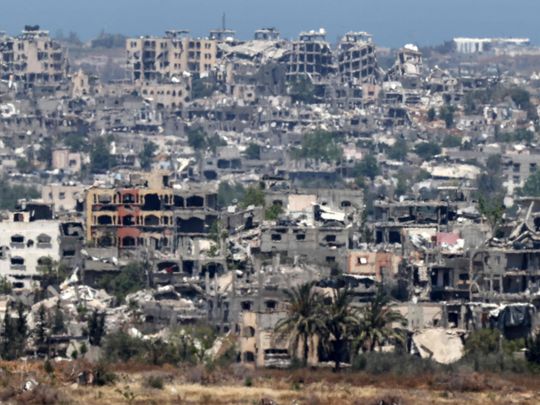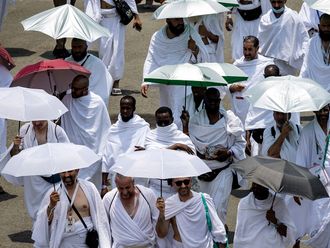
JERUSALEM: Women and children make up at least 56 per cent of the thousands killed in the Gaza war, the UN said Tuesday, amid controversy over the toll based on numbers from the health ministry in Hamas-run Gaza.
The United Nations was clarifying a fresh breakdown of the death toll in Gaza, after Israel slammed the world body for “parroting... Hamas’s propaganda messages”.
“Anyone who relies on fake data from a terrorist organisation in order to promote blood libels against Israel is antisemitic and supports terrorism,” Israeli Foreign Minister Israel Katz said on X, formerly Twitter, late Monday.
Due to a lack of access, UN agencies have since the beginning of the Gaza war on October 7 relied on death tolls provided by the health ministry in the Hamas-run territory.
Also read
- Baby in Gaza saved from womb of mother killed in Israeli strike, placed in incubator in UAE field hospital in Rafah
- Gaza children fly kites to escape horrors of war
- Doctors visiting a Gaza hospital are stunned by the war's toll on Palestinian children
- New Kalimat Foundation merchandise campaign offering glimmer of hope to children of Gaza
This has drawn criticism from Israel, but the United Nations says the ministry’s tolls before the war were deemed reliable, and that it will strive to verify the figures “when conditions permit”.
The ministry said Tuesday that at least 35,173 people have been killed in the territory due to Israeli military operations since the war erupted.
The war was sparked by Hamas’s unprecedented October 7 attack on Israel, which resulted in the deaths of more than 1,170 people, mostly civilians, according to an AFP tally of Israeli official figures.
Gaza authorities have consistently said women and children make up a large majority of those killed in the Palestinian territory.
‘Not mutually exclusive’
But a fresh breakdown provided by the health ministry and published by the UN last week appeared to cast doubt on that assertion.
The ministry said that as of April 30 it had fully identified nearly 25,000 of those killed, with identification elements missing for the remainder of the nearly 10,000 others who had died.
Of those fully identified, it said 40 percent were men, 20 percent women and 32 percent children, while another eight percent were elderly - a category not broken down by gender.
WHO spokesman Christian Lindmeier on Tuesday said the new breakdown as “the most comprehensive” provided to date.
He told reporters in Geneva that by applying the same ratio to the unidentified and assuming women represent half of the elderly, it could be expected that at least “56 percent women and children” were among the more than 35,000 dead.
And that did not take into consideration the likelihood that more women and children were likely to be among the thousands believed to still be under the rubble “because they are the ones typically staying at home”, he said.
So from a “minimum statistical calculation”, he said, “you come to 60 percent women and children”.
Jens Laerke, a spokesman for the UN humanitarian agency OCHA, said the new breakdown did not contradict previous estimates that women and children made up more than two thirds of those killed.
What had been provided by the health ministry now was simply “more detail about a sub-section of the overall tally of 35,000 deaths”, he said.






